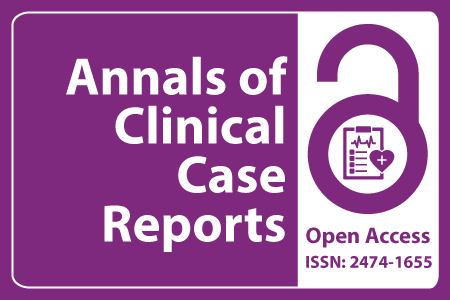
Journal Basic Info
- Impact Factor: 1.809**
- H-Index: 6
- ISSN: 2474-1655
- DOI: 10.25107/2474-1655
Major Scope
- Endocrinology
- Cardiac Surgery
- Cancer Clinic
- Orthopedic Surgery
- Orthopedics & Rheumatology
- Sexual Health
- Inflammation
- Signs and Symptoms-Clinical Findings
Abstract
Citation: Ann Clin Case Rep. 2017;2(1):1271.DOI: 10.25107/2474-1655.1271
Discussion of Acquired Long QT Syndrome in a PatientBeing Treated for Non-Cardiac Disease
Emilio A Russo, Hoangvy Le and Ahn-Linh D Bui
Department of Family Medicine, LSU Health Science Center New Orleans, USA
*Correspondance to: Emilio A Russo
PDF Full Text Case Report | Open Access
Abstract:
Long QT syndrome (LQTS) is a disorder that affects myocardial conduction, namely ventricular depolarization and repolarization, characterized by QT interval prolongation on an ECG. Long QT Syndrome may be either inherited or acquired with acquired being far more common. The normal QT interval is less than 440 milliseconds though this interval may be affected by both heart rate and gender. Etiologies of acquired, prolonged QT interval include electrolyte abnormalities, hypothermia, myocardial disease, elevated intracranial pressure, and prescription drugs. Many commonly used medications can cause prolongation of the QT interval, including anti-arrhythmic agents, anti-emetics, antibiotics, anti-psychotics, and anti-depressants of significance, prolongation of the QT interval may lead to Torsade de Pointes, ventricular tachycardia, and ventricular fibrillation. As such, early recognition, identification of reversible causes, including discontinuation of the offending agents, and prevention of adverse events are key to management. Beta blockers have been shown to prevent adverse cardiac events in patient who have Long QT Syndrome. Moreover, patients who are considered high risk of sudden cardiac death due to Long QT Syndrome may benefit from an implantable defibrillator.
Keywords:
Cite the Article:
Russo EA, Le H, Bui A-LD. Discussion of Acquired Long QT Syndrome in a Patient Being Treated for Non-Cardiac Disease. Ann Clin Case Rep. 2017; 2: 1271.













